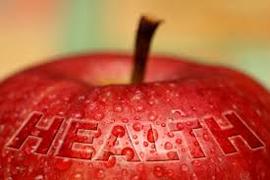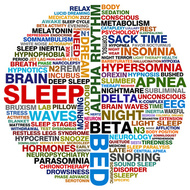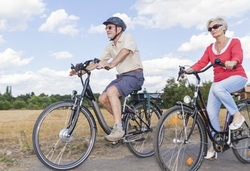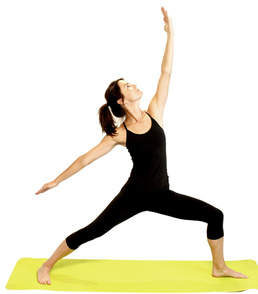 I've decided to take my own advice this month and banish winter tiredness by doing less - such as writing an original blog. After all, why reinvent the wheel! So, here's some great advice from the NHS on how to stay healthy this winter ..... "It may be cold outside, but winter needn't be the unhealthiest time of year for you and your family. Here are five ways to make sure that, even when your body is telling you to hibernate, you can keep healthy and fit, no matter what the weather's like. Banish winter tiredness Many people feel tired and sluggish during winter. This is due to the lack of sunlight, which disrupts our sleep and waking cycles. Try these tips:
Eat more fruit and veg When it's cold and dark outside, it can be tempting to fill up on unhealthy comfort food. However, it's important to ensure you still have a healthy diet and include five portions of fruit and veg a day. If you find yourself craving a sugary treat, try a juicy clementine or satsuma instead. Winter vegetables such as carrots, parsnips, swede and turnips can be roasted, mashed or made into soup for a comforting winter meal for the whole family. Explore varieties of fruit and veg that you may not normally eat. Read more about how to get your 5 A Day. Find recipes for 10 warming hot meals. Drink more milk You are more likely to get a cold in winter, so make sure your immune system is in tip-top condition. Milk and dairy products such as cheese, yoghurt and fromage frais are great sources of:
Read more about milk and dairy foods. Read more about healthy eating. Try new activities for the whole family Don't use the cold winter months as an excuse to stay in and lounge around. Instead, get out with the whole family to try out a new activity –maybe ice skating, or taking a bracing winter walk on the beach or through the park. Regular exercise helps control your weight, boost your immune system, and is a good way to break the tension that can build if the family is constantly cooped up inside the house. Read more about different types of exercise for you and your family. Have a hearty breakfast Winter is the perfect season for porridge. Eating a warm bowlful on a cold morning isn't just a delicious way to start your day, it also helps boost your intake of starchy foods and fibre. These foods give you energy and help you feel fuller for longer, stopping the temptation to snack mid-morning. Oats also contain lots of vital vitamins and minerals. Make your porridge with semi-skimmed, 1% or skimmed milk, or water, and don't add sugar or salt. Add a sliced banana, berries or other fruit for extra flavour and to help you hit your 5 A Day target. Get more ideas for healthy breakfasts." And here's the link to the page with the original article: https://www.nhs.uk/Livewell/winterhealth/Pages/Healthywinter.aspx And of course, some Reflexology won't hurt either. To book a treatment go to http://www.lothianreflexology.co.uk/book-a-treatment.html
0 Comments
 "We are lucky to get half the nutrition our parents and grandparents did in the Fifties and Sixties," said Amanda Williams, managing director of Cytoplan, a UK distributor of the "food-state" supplements in an article in The Independent today. Over the last 60 years the food chain has changed out of all recognition, becoming industrialised and chemicalised, and causing depletion of the nutrient levels in the soil. This, combined with an increasing trend towards food production becoming more and more processed, makes it ever more difficult to be sure that our food is providing all the nutrients we require. Our body is designed to live on fresh fruit and vegetables and the more natural the food, the greater the benefit it provides to the body. We need our food to provide essential vitamins and minerals or we need to find alternative sources of these essential elements to good health in the form of supplements. But are supplements all they’re cracked up to be? Most vitamin supplements are synthetic and as such may have limited benefits: they do not contain the complex mixture of factors that are available from nature, and may also contain fillers or binders and artificial flavourings. Some claim that these synthetic vitamin supplements act as free radicals in the body increasing toxicity. The best way to top up your mineral and vitamin reserve is through a varied diet, high in (organic) fresh fruit and vegetables, white meat and whole grains, but if you feel you need a supplement, then seek out food-state supplements. These are nutrients which are combined with other appropriate food bases to ensure they come complete with the phytonutrients and associated food factors that are necessary for optimal absorption and use in the body. The advantages of this more natural approach to supplements are: 1. They are easy for the body to absorb because the particles are smaller 2. They are more effective because they provide nutrients in a state as close as possible to food 3. They avoid increasing the toxic load on the body because they contain no GMO materials, synthetic chemicals, fungicides or herbicides And if you’re trying to conceive, it’s important to get all the vitamins and minerals you need to improve fertility, in as natural a way as possible. Looking for suppliers? Just Google food-state supplement suppliers, but be warned, they're expensive, very expensive! MAXIMISE YOUR FERTILITY, NATURALLY Your body naturally strives to be in a state of balance and it's constantly adjusting to maintain that state of balance: your breathing, temperature, blood pressure, blood volume, fluid levels, cell life cycles, hormone levels and a multitude of other adjustments are being made by your body every minute. This balance is created from a dynamic process that responds to internal and external factors: what you eat, your level of physical activity, stress, environmental pollution, and a whole range of factors. And your body needs to be in balance with your mental and emotional state - thought patterns and emotions have a physical impact – your thoughts and feelings can affect posture and chemical responses in the body: the stress response is a great example of how mind and emotions can affect physical state. So here are a few ways to maximise your fertility, naturally: Eat Naturally When it comes to diet, go for organic, unprocessed, colourful food. If possible, cook from scratch to avoid additives, and have a wide variety of food. Avoid white or grey foods such as white bread, pasta and rice and avoid diet foods as they are likely to contain artificial sweeteners such Aspartame. Cut out crackers, pastries, cakes and chocolate as they are likely to contain transfats which are linked to lower fertility and avoid products with MSG such as chinese meals, flavoured crisps, meat seasonings and packaged soups. Live Naturally Alcohol, caffeine, smoking, recreational drugs, and unnecessary medications are all no no's. Avoid stress or develop powerful coping strategies to deal with stress - try meditation to help detox the mind and take the edge off negative mindsets. Exercise Gently Avoid the gym and excessive exercise (long runs, rows, etc). Walking is great exercise and extremely beneficial, especially if you walk in a natural environment. Go for natural forms of exercise such as yoga and if possible find a fertility yoga class. Muscle building exercise diverts testosterone from the reproductive organs to the muscles. Avoid cycling and swimming. Ensure A Natural Environment Check your house for cleaning products - many of these contain toxic chemicals. Many of these chemicals were tested in the 1950's and 60's and not in the more stringent health criteria that exist today. Try cleaning your house with lemon juice and baking of soda or buy natural products from your health food store. If you feel like being a bit more creative, you can go online and discover how to make your own cleaning products. And that goes for beauty and personal care products for hair, body and personal hygiene. Check online to see if you can find more natural versions of your beauty and personal care products. Laptops should not be kept on laps and mobiles should not be kept in pockets - they give off low levels of radiation. If possible avoid low level radiation from TV, VDU, digital clocks and electric blankets and avoid living near pylons, radio stations/masts, phone exchanges for the same reasons. Live A Natural Lifestyle Be creative - draw or paint, sew, bake, write or do whatever you do to get your creative juices going. Being creative connects mind, body and emotion to your desire to create a baby. Look at your life and strip it back to the bare essentials. Look at your life and how you spend your time and ask yourself whether it gives you joy or if it's just there to fill in the time. Go for joy! To help you work your way through this more easily, write down a list of all the things you'd like to do to establish a more natural lifestyle. Then work out what are the three easiest things to do and do them. Then work out what are the three most impactful things and work out a plan for implementing them. Then knock of the rest of the list at a rate of three items a week. I hope you have joy in living a more natural life and maximising your fertility, naturally.  As a Reflexologist, I always ask clients about their sleep patterns, because a good night's sleep is so important to general well-being. And better sleep is often one of the additional benefits of a Reflexology treatment as the majority of my clients report having had a great night's sleep after a treatment. The Harvard Women’s Health Watch suggests six reasons to get enough sleep: * a good night's sleep can help learning and memory; * chronic sleep deprivation may cause weight gain by affecting the way our bodies process and store carbohydrates, and by altering levels of hormones that affect our appetite; * insufficient sleep can lead to poor performance and accidents; * sleep loss may result in irritability, impatience, inability to concentrate, and moodiness; * serious sleep disorders have been linked to hypertension, increased stress hormone levels, and irregular heartbeat; * sleep deprivation alters immune function, including the activity of the body’s killer cells. Here are ways to get a better night's sleep: 1. Have a sleep routine Going to bed and waking at the same time (even at weekends) helps to improve your ability to sleep and the quality of that sleep. Avoid evening naps by keeping active until bedtime. 2. Get out into natural light Long days in the office under artificial light can make your brain sleepy, while hours in front of a TV or computer screen can suppress the body's production of melatonin, making it harder to sleep. Get out during the day - walk to or from work or go for a walk at lunchtime - even in winter when light levels are poor, this will help your sleep patterns. The exercise you get from your walk will also help you sleep better at night. 3. Make sure your bedroom is sleep friendly Keep your bedroom cool and well ventilated. Keep your bedroom dark - use blackout blinds or a mask to keep light out. Have your bedroom as quiet as possible, and if you can't avoid noises from neighbours or barking dogs, use soothing sounds or earplugs to mask external noise. And, of course, make sure your bed is comfy. If you wake with a sore back or aching neck it may be a sign that you need a new mattress or a different pillow. 4. Prepare for bed Have a bedtime routine: as well as brushing your teeth and getting ready for bed, incorporate relaxing activities into your bedtime routine: try doing a 15 minute relaxation, or some gentle yoga exercises. To allow you to be totally relaxed, empty your head: write down all the things that you want to do tomorrow, or anything that is worrying you, or anything that you need to think about, or anything that you need to remember to do. Get it all down on paper, so there's nothing for your mind to chew on as you try to get to sleep. 5. Eat yourself sleepy For a better night's sleep avoid big meals and fatty food late at night, alcohol, caffeine, and smoking all of which will disrupt sleep patterns. If you find yourself waking at night for a snack, try having a light snack before bed - a handful of almonds or a couple of oatcakes with half a banana, honey, a slice of turkey or cheese may help keep your blood sugar stable throughout the night. You might also want to have a cup of chamomile tea or a glass of warm milk. 6. Get rid of anxiety If worry keeps you awake at night, this is may be a stress problem, not a sleep problem and you need to address the source of your worry. You may benefit from meditation, or you may need to learn how to manage your thoughts, or perhaps enrol on a stress management course. If it's a problem and you're not sure what to do for the best, go to your GP for advice. 7. Try a Reflexology treatment Sometimes it's nice not to have to do everything yourself, so consider getting support from a Reflexology treatment. Many clients talk about getting a great night's sleep after a treatment - it's almost as it a Reflexology session has the effect of pressing a reset button in the body. That's not to say that you won't need to take action yourself, but you know what they say about a problem shared is a problem halved! If you're experiencing poor sleep and would like to try Reflexology to discover if it will help, click this link to email me and ask about my special discount for new clients. Wishing you sweet dreams.  The International Stress Management Association launched their 2008 National Stress Awareness Day with their top ten stress busters:
Pick one items from the list and put it into practice and see how well it works for you. Or you could come for a relaxing Reflexology or Indian Head Massage and let someone else take the strain for a change. Just call Doris on 07724 197627 to book your appointment. And remember there's a special JULY OFFER: £10 off your first treatment - but only if you book in July (appointments can be scheduled for August).  It can sometimes feel that staying healthy and ageing well can be an uphill struggle. There seem to be so many conflicting ideas about what we should and shouldn't eat, which is the best diet to follow, how much or little exercise we should get and what type of exercise is best. There's plenty of advice on what supplements and special healthy products we should be including in our diet and which health and fitness guru to follow - because different ones seem to pop up all the time, with new ideas and products. Of course, much of this is designed to relieve us of our hard earned cash, so what is the best way to stay healthy or even improve your health? I've developed a list of easy actions to take which cumulatively with benefit your health and well-being. Most cost nothing and there's a fairly heavy emphasis on reducing stress ... Belly breathing - Take a long slow breath in through your nose. Push the air down into your tummy, almost down to your waist. Let it out again slowly. This deep breathing oxygenates your blood, feeding the body cells; it reduces muscle tension and blood pressure; it clears out stale air from the lungs and opens the airways. If you are under severe pressure, you can't do anything more effective to calm yourself down than taking a series of long slow breaths. Exercise - Stress produces chemicals which, if they are not naturally neutralized are stored in the body to create a toxic effect. Exercise is a great way to release these chemicals. The key thing is not to overdo it. Work at 70% of your capacity in order that you don't tire yourself out. Give yourself a day off to rest your body. Do something you enjoy, it doesn't have to be difficult: a brisk walk in the country surrounded by the sights and sounds of nature will both tone the body and calm the mind. Take more water - Often our fluid intake can affect our energy levels. Water helps rehydrate the body and it feeds the brain (water helps to conduct all those electrical connections). If you are dehydrated your system functions less efficiently. Water helps the kidneys to function more efficiently and that helps with the removal of waste within the body. Touch therapies - You don't have to do it all yourself: give yourself a break and let someone else take the strain. Try Reflexology, Indian Head Massage, or any other touch therapy that takes your fancy. It's amazing how relaxing and re-balancing it can be. Eat well- Our bodies are very intelligent and if you listen, your body will tell you what it needs. Basically if you aim to reduce: sugar, salt, fat, additives, caffeine and alcohol; eat a wide variety of foods, eat lots of fruit and veg and some fibre, you'll probably be eating well. You can help digestion and absorption of food if you eat slowly, savouring your food as you eat and eating regular meals will help keep blood sugar levels balanced. A few small moves towards less processed food and you will find that your food gives you energy rather than robbing you of energy. Relax - Relaxation is nature's antidote to stress. Fifteen minutes every day should be enough to keep you in balance. Relaxation is about being rather than doing and we all need time just to be - ourselves. Relaxation allows the mind and body a bit of quiet time to connect with each other. Posture - Good posture supports good breathing and reduces muscle tension. For a good seated posture: have your feet flat on the floot (legs and ankles uncrossed), thighs parallel to the floor, kneed away from the edge of the seat. Your back should be well supported, shoulders relaxed and down, head resting comfortably on the neck. Don't sit in any position for too long at one time or the muscles will tense up. Let go - At the end of each day, take time out to let go all the tensions, feelings and emotions collected during the day. Today is challenge enough without carrying some of yesterday's baggage too! Often it's the negative things which we carry with us - how often do you wake up with a warm glow because of what happened yesterday? Probably not as often as you waken feeling fed-up and low because of what happened yesterday. And letting go is much easier than you'd expect, all you have to do is stop thinking about what it was that was making you feel bad. U-time - Make time for yourself. It's not selfish, rather it's a matter of self-preservation and it will help those around you: if you are happy in yourself, and with yourself and your life, you will have much more to offer friends, family and colleagues. Sleep well - This is a matter of quality as much as quantity. Everyone needs a different amount of sleep, what's important is that you wake up feeling refreshed and with enough energy to get you though the day. If you have difficulty sleeping, avoid alcohol, coffee and food last thing at night and make a point of letting go any worries, problems or niggles before you go to bed. If you have sleep problems, it helps to establish a bedtime routine. If you'd like help with relaxing or sleep problems, why not try some Reflexology or Indian Head Massage. To find out more contact Doris on 07724 197627.  It's Mother's Day on Sunday 30th of March, so I thought I'd have a theme for the blogs this month: Ageing Well. Of course, we're all ageing every minute, but getting older is both better and worse than it was twenty years ago. Gone are early retirement ages and decent pension pots (for most people anyway). And over 55's are likely to have a heavier burden than ever before - looking after grandchildren and their own elderly parents or relations. But medicine is much better able to keep us alive for longer and there is much more support for the elderly in the community (although always room for improvement). Looking at some of the literature for ageing well, there's a strong emphasis on keeping fit and healthy, but fit and healthy are not necessarily the same thing. Good health is much more than fitness - good health is the result of a complex combination of mental, physical, emotional and genetic qualities. As we get older the changes can be much more challenging - family moving away, loss of parents and other loved ones, declining health, trying to keep up to date with technology, or fear of the future. The relaxing effect of a reflexology treatment can help put things in perspective and provide a listening ear. Often it's the job of the over 55's to listen to the trials and tribulations of others - family, friends, the stranger at the bus stop. So having a listening ear during a reflexology treatment can be the only time some of older folks are heard. Health is about eating well, sleeping well, breathing well, having a good posture, having an effective stress management strategy and supporting an active and robust immune system. Reflexology can help with most of these: the relaxing effects of reflexology helps to deepen breathing and release tight muscles allowing posture to improve and it also helps to improve resilience to stress. Many clients find the quality of their sleep improves after regular reflexology treatments - again perhaps because of the relaxation effect. And that relaxed state allows your body to do it's repair and renewal work, so it helps support a more robust immune response. Reflexology can improve well-being and restore balance to mind, body and emotions - something that we all deserve, but especially well-deserved by Mums in this Mother's Day month. So if you want to treat your mum this Mother's Day, ditch the flowers and chocolates and get something really useful - a Reflexology voucher.  Sitting, moving, sleeping - you can't do any of it easily without the support of your back. But are you supporting your back in return? All too often we take our back for granted - until it lets us down, or we have given it all it can take. A healthy back is strong and supple, but it can very quickly lose is strength and flexibility if it's not exercised. It's that old saying about use it or lose it. So what do you do to ensure your back is strong and flexible? And it's important to get good advice about what to do to make your back strong and supple, because the wrong exercise can do more harm than good. That's why I've gone to the NHS for information. These simple exercises can be done in five minutes and don't need any equipment or special conditions. So why not give them a try. But beware, if you have existing back problems, take advice from a professional before trying any of these exercises. And if you want to rest your back, try one of these techniques:
Rest like this for just a few minutes every day and feel the difference in your energy levels. Look after your back and you will feel younger and healthier and more relaxed. And if you'd like some support to bring your body back into a healthy balance you might find Reflexology useful. For more information or to book, call Doris on 07724 197627.  I proudly announced the launch of my new online business, Baby Making Mindset, last week and I'm delighted with the progress I've made, but it's had it's downside. I'm now officially a desk potato! I wouldn't call myself a couch potato because I've been so busy that TV is a distant memory (I've still to see some of the programmes I saved over Xmas and New Year). No, I'm a desk potato, stuck to my typist chair at my PC producing blogs and newsletters, facebook posts and twitter feeds and the odd article - not to mention content for my new Club. And I get so absorbed with it all that I only remember to move when my legs start going numb - so much for self-awareness! So I've decided I need to get some more exercise, but I'm not really fitness freak material: I'm a member of a gym - but it seems to take up so much time; I like to go out walking - but the weather isn't always great; I do still need to spend a lot of time at my PC - but I also know that I need to take more breaks. Notice all the "buts" - those are objections, resistance, excuses and I seem to have a lot of them. I need a new strategy: I want to make it easy for myself to reduce the resistance, so I thought "a little and often", that will help me create some breaks from my PC which would also be a good thing. What how do I do that? Well, I thought I'd ask Google what to do and I got a real surprise ... some excellent information from the NHS. It provides exercise for all ages and distinct programmes for men and women and it's got lots of other great information that's easy to read and apply - I'm surprised and impressed. Here's a link to a series of 10 Minute workouts. I'm going to be incorporating them into my day to give me a break from my PC. Have a look at the link and see if they might suit you too ... http://www.nhs.uk/Livewell/loseweight/Pages/Tenminuteworkouts.aspx Happy workout! |
|
